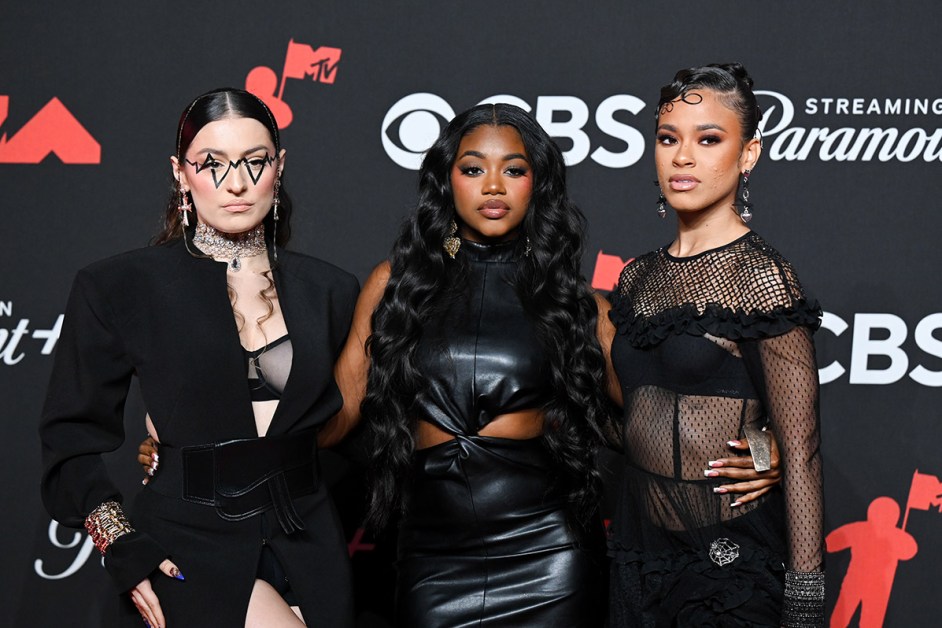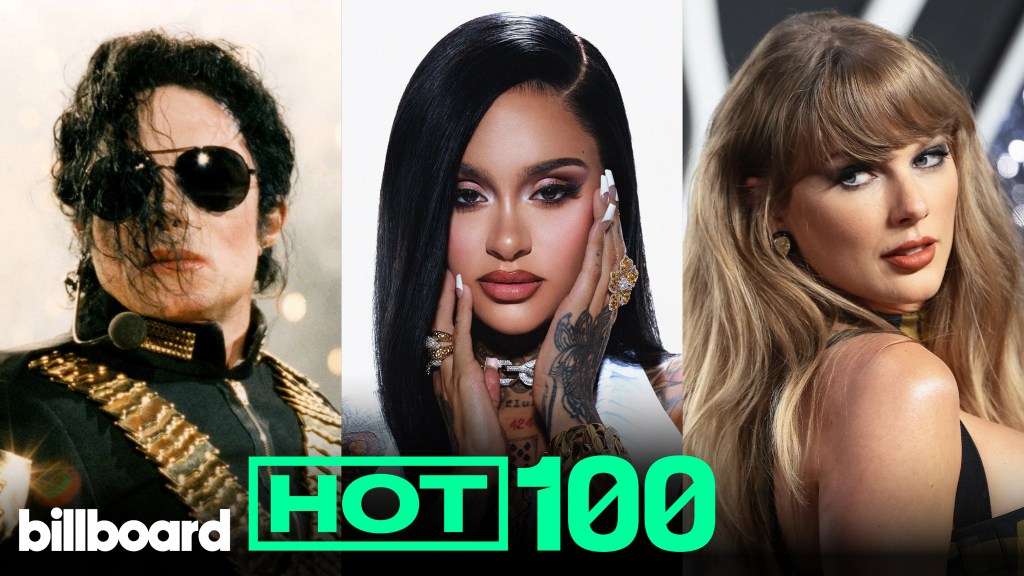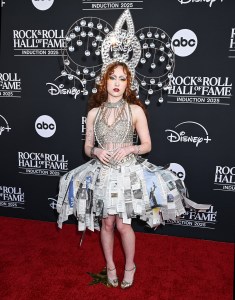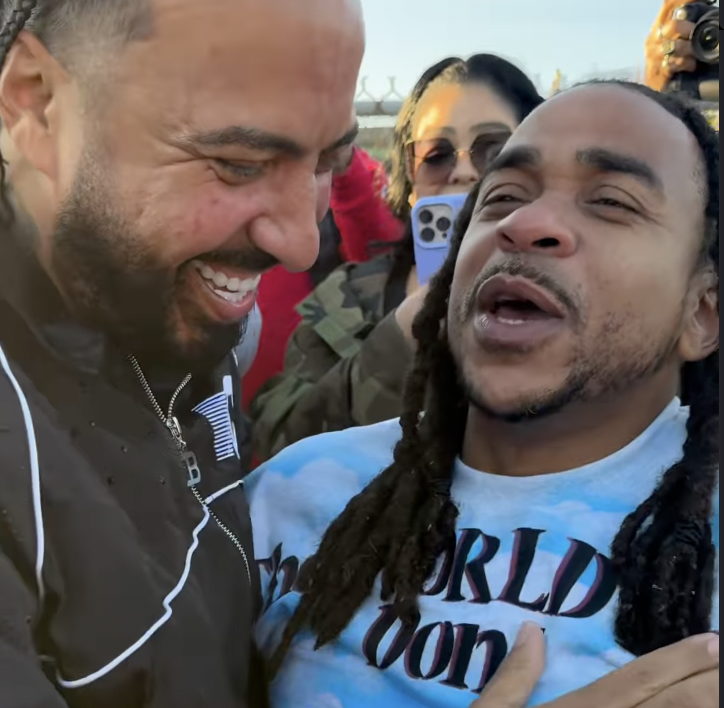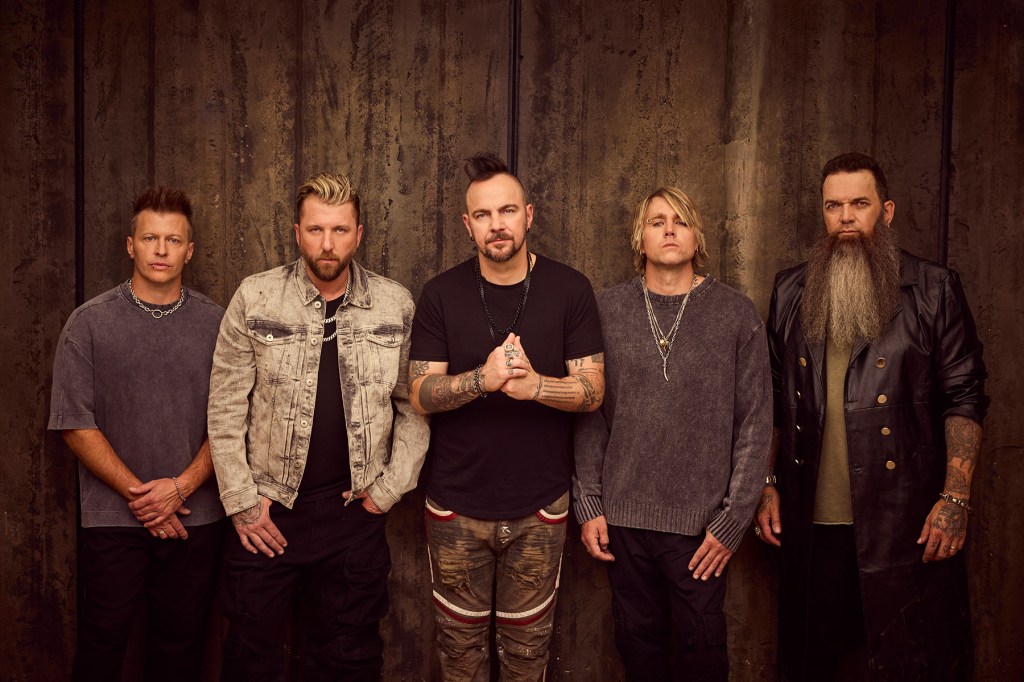News
Page: 117

Trending on Billboard
After a year-long hiatus, Envision Festival is returning to Uvita, Costa Rica this February. Attendees will once again be able to revel in the electronic-focused music, workshops and lush jungle setting that have defined the fest since its 2011 debut. Now, Envision organizers are announcing a host of changes and upgrades designed to optimize the 2026 edition.
Explore
See latest videos, charts and news
“We have listened, and we have put changes into action,” Envision co-founder Josh Wendel tells Billboard. “We are now ready to share how we are evolving and how we will deliver a better experience.”
On Monday (Nov. 10) Envision organizers unveiled a long list of improvements for the 2026 fest, happening Feb. 23-March 2 at its longtime site in a beach-adjacent swatch of jungle on the Pacific Ocean side of Costa Rica. The festival’s phase one lineup includes Bob Moses, CloZee, Daily Bread, Emancipator, Goldcap, Justin Martin and many others, with more artist to be announced in the coming weeks. Envision also offers a wide array of yoga, movement and sustainability classes, along with other workshops.
The announced changes follow a challenging 2024 edition, which found attendees citing sanitation issues and some attendees reporting that they experienced gastrointestinal illness while at the fest. Envision did not happen in 2025 as organizers regrouped, with Wendel transitioning from his production leadership role to leading the entire event, of which he also became the sole owner.
“After 2024 there were operational challenges we acknowledge that we had to fix, so in 2025 we chose the theme ‘back to our roots,’” Wendel says of the 2026 event’s guiding ethos. ” It was like, ‘What are we doing? Why are we doing it? How are we doing it? It became this deep, introspective journey of dissecting every little element of why I initially started it and the impact that it’s had.”
Originally from Florida and a Costa Rica resident for the last 22 years, Wendel speaks to Billboard from his home in Costa Rica, joking that he’s usually barefoot in the jungle. The updates he and the team developed emphasize that health and safety is Envision’s top priority and note that an audit of the 2024 event revealed multiple reasons for why people experienced GI issues, with “many people [getting] sick from viruses that were brought into the festival by travelers coming to the festival. For many people, moving into the jungle environment of Costa Rica and being exposed to different microbes is enough to trigger GI issues.”
Organizers are unrolling multiple methods for eradicating these issues in 2026. “It’s a hyper-focus on safety, on our medical team and on analyzing every which way that we can do that, including having a medical supervisor and a different medical team,” says Wendel. “You wouldn’t want to put this on the lineup poster, but health and sanitation are our headliners this year.”
As such, 2026 attendees will find separate stations for hand washing and water bottle refills. (While they were also separate in prior years, attendees did not treat them as such, so water will thus become a destination via a dedication water refill station called the Templos de Agua.
“It’s the jungle, and people are coming from all over the world to gather,” Wendel continues. “Obviously there is the self-care component we must continue to message to make sure people practice self-care as we give them the tools to do that. Wash your hands, use hand sanitizer, get some sleep, take care of yourself.”
As such, each festivalgoer will also be provided with a comprehensive guide to staying healthy while in Costa Rica that’s been developed in partnership with local doctors, health professionals and the Costa Rican Ministry of Health.
Another major change is the approach to toilets. Envision 2026 will provide more port-a-potties with more frequent pumping and better placement. Envision 2024 debuted a waterless, off-grid sanitation model using dry-composting toilets. The 2026 fest will improve upon this system by swapping out all tanks prior to guest arrival, so each system is fresh and empty at the start of the event. Carbon filters and improved ventilation will also be installed to reduce bathroom-related odors and increase airflow. A dedicated onsite maintenance team will service toilets more frequently during the fest to optimize cleanliness, hygiene and comfort.
After the festival, waste from these dry-composting toilets will be sealed and transferred to a long-term curing area where it will compost for 12–18 months, ensuring full pathogen elimination before it’s used for off-site organic fertilizer.
Envision has also brought in a new medical director, a Costa Rican doctor whose experience includes working with international film and television productions in the country and who is also part of a team that provides medical assistance to large-scale events in the U.S. This person will also work with a local medical team and in partnership with a local clinic, hospital and Ministry of Health and help hire more local people for the Envision lifeguard team that keeps watch over the festival’s beach area.
Expanded sustainability initiative will include water conservation guidelines and compostable cups, plates silverware and other serveware. Organizers predict that these compostable items will significantly reduce water consumption by eliminating the washing necessitated by a now phased out reusable dish program. Along with the water-free composting toilets, the production team is also installing low-flow showerheads and encouraging short showers for all guests.
“We’re not a luxury hotel,” says Wendel. “It is the jungle, and we are committed to doing everything to make it as convenient and comfortable and as easy as possible.”
Envision is also working closely with community partners and the organization who manages the local water supply to create a new on-site water system that ensure that the fest will have enough clean water and will also reduce the impact of Envision on the water flow of the nearby town. This system has been designed experienced engineers and will include filters, pumps, treatment, storage tanks and water distribution infrastructure.
Envision Festival
Courtesy of Envision Festival
These programs are particularly crucial given that Envision happens in an environmentally sensitive area, with the lush jungle setting, beach access and deep nature immersion provided by the fest being a huge part of its appeal. Envision happens at Rancho La Merced, located less than a mile north of the breathtaking Marino Ballena National Park, a protected marine sanctuary that’s home to humpback whales, spotted and bottlenose dolphins, manta rays, parrotfish and mackerel.
The festival site, which Envision leases from its owners, is itself home to emerging mangrove forests, creeks, freshwater canals, a host of tree and plant species, birds, monkeys and other wildlife.
“People come for the headliners, but then they’re barefoot in the jungle and jumping in that ocean, and doing yoga and drinking from a coconut and seeing monkeys and something clicks,” says Wendel. “People get inspired. The music is like a bait-and-switch.”
But there is of course the push/pull of bringing thousands of people (many of whom are looking to party for a week) to such a ecologically delicate area, an issue many festivals that happen in special places in nature must grapple with. “When you talk about environmental impact, I look at it as 10 steps forward, then one step back, with a little traffic and boom boom bass [during the festival itself], then 10 steps forward,” says Wendel.
Envision has put this into action by reforesting the site, where many of the trees were cut down in the mid-20th century to make space for a cattle pasture. Over the years, Envision has helped plant Ylang Ylang and fruit trees throughout the grounds and at Rancho La Merced and has also planted beach almonds in the campgrounds for shade. Before and after photos from 2014 to 2024 show an impressive expansion of trees and foliage on the site. Organizers have also worked with local organizations to plant in the surrounding area to protect water sources and provide biological corridors throughout the Rancho La Merced property.
Envision Festival
Auudrey
To mitigate the impact of attendees on the festival on the site, the 2026 edition will also reduce capacity by roughly 2,000 people, bringing down overall attendance to approximately 5,500. (The amount of temporary infrastructure built on site will also be reduced.) This decreased headcount also factors in reducing travel from international Envision staff, with the focus being to hire as many local people as possible to mitigate impact, create jobs and keep the event local.
The fest is also leaning into this local component by bringing in more products from local vendors. This will include local produce kombucha brewed in Uvita, beer from nearby Dominical, cacao from local regenerative farms and herbal elixirs, mixers made in the region using native plants and locally grown herbs and compostable plates, cups and containers made in Costa Rica.
All of these changes are coming in tandem with a phase two lineup Wendel calls “by far the most exciting phase two that we’ve ever had.” While he’s tight-lipped about who it might be, he says this lineup expansion will likely be announced this month.
Over Zoom Wendel seems sincerely excited these changes and clear-eyed about the reasons for them. Many event producers often receive severe verbal abuse on social media when elements of an event go wrong, an experience Wendel says was not necessarily pleasant, but ultimately useful.
“Even when the feedback comes off as ugly and emotionally vomiting, I’m never losing sight of who I am or who we are as an organization. It’s about being able to pull out what valuable information I can that can actually make this event better.
“It’s psychological warfare right now, with the amount of anger, frustration and hatred,” he continues. “So [for me] it’s about asking how we can be vulnerable leaders? How can we be honest? How can we be humble? It’s about acknowledging mistakes and being proud of your desire to grow and learn from those mistakes… I’m making the best decisions I can make from the best information I have.”
Trending on Billboard Latin music executive Jochy Rodríguez has launched a new independent agency, Joch Entertainment, he tells Billboard. Rodríguez — who has spent the past nine years as senior vp of promotions and marketing at WK Entertainment — will focus the company’s efforts on marketing, management, consulting and radio promotions. “This new chapter represents […]
Listen to new must-hear songs from emerging R&B/hip-hop artists like detahjae and rum•gold.
11/10/2025
Trending on Billboard Michael Jackson’s “Thriller” surges to the top 10 of the Billboard Hot 100, Leon Thomas’ “Mutt” moves up. Will Alex Warren’s “Ordinary” or HUNTR/X’s “Golden” be able to make No. 1 this week? Tetris Kelly: Michael Jackson makes a holiday return to the charts as Taylor Swift still battles with KPop Demon […]
Trending on Billboard It’s that time of year again, when some of music’s greatest living legends gather together to celebrate one another’s immense impact on culture, with Cyndi Lauper, the White Stripes, Outkast and more getting inducted into the Rock & Roll Hall of Fame’s class of 2025 on Saturday (Nov. 8). As it is […]

Michael Jackson’s “Thriller” surges 32-10 on the Hot 100. With the song, which hit No. 4 in 1984, the late King of Pop becomes the first artist ever to rank in the top 10 in six distinct decades (the 1970s, ‘80s, ‘90s, 2000s, ‘10s and now ‘20s). He surpasses Andy Williams, who died in 2012 and whose history includes placements in the top 10 in five decades (‘50s, ’60s, ’70s, ‘10s and ’20s, extended since 2018 thanks to “It’s the Most Wonderful Time of the Year”).
Jackson first reached the Hot 100’s top 10 as a soloist in November 1971 with his debut on his own, “Got to Be There.” (His fellow acts in the top 10 that week: Isaac Hayes, Cher, John Lennon/Plastic Ono Band, Bread, the Chi-Lites, Rod Stewart, Cat Stevens, Sly & the Family Stone and The Osmonds.) Jackson boasts 30 top 10s, including 13 No. 1s. Until this week, Jackson, who died in 2009, last ranked in the top 10 as featured on Drake’s “Don’t Matter to Me” in 2018.
(Notably, with Jackson, then just 11 years old, as a member, the Jackson 5 spent its first week in the Hot 100’s top 10 on the last chart of the ‘60s, dated Dec. 27, 1969, with breakthrough hit “I Want You Back.”)
With Halloween kicking off the Oct. 31-Nov. 6 tracking week, “Thriller” drew 14 million streams (up 57% week-over-week) and 9.3 million in radio airplay audience (up 124%), while selling 3,000 (up 1%).
Additionally, “Thriller” is now Jackson’s sole longest-charting Hot 100 hit: 26 weeks. It one-ups two other classics from his Thriller album, as “Billie Jean” and “Beat It” each spent 25 weeks on the chart beginning in 1983.
Over the weekend, Max B finally walked free after roughly 16 years behind bars. He even made it out to the New York Jets game yesterday, waving his signature “Wavy” flag , and lo and behold…they won! The image of Max B stepping onto the stadium, flashing smiles, soaking in the street-style energy, and then watching the Jets come away with the W is almost cinematic. It felt like the beginning of his comeback. For someone whose career was paused, it’s a vivid way to mark a turning point.
Max B’s story is complicated but very compelling. Born Charly Wingate, he rose to fame from Harlem with his early mixtapes and his unmistakable melodic street voice, helping to define a new East Coast sound. He stacked up mixtapes, collaborated with French Montana (their mixtape Coke Wave is a cult classic), and coined a vice around the “wave” aesthetic. Then the legal issues came into play. He was convicted (in connection with a 2006 robbery that ended in a death) and initially got a 75-year sentence in 2009 before a plea deal and other legal shifts markedly reduced that time. Despite the setback, his music and persona never lost their pull. Instead, anticipation for his release just continued to grow.
In terms of his impact, Max B’s influence on both Hip-Hop and pop culture is real and very under-appreciated. His sing-rap hybrids, ad-libs, and “wavy” slang seeped into later waves of artists who blur the lines between melody and rap, especially in the mixtape era and beyond. Fans still point to tracks like “Picture Me Rollin’” or “Why You Do That?” as part of that early blueprint. Now that he’s out, it matters because he not only gets a second chance at life, but also at reclaiming that voice in the culture. If he drops new music, it can help reset or at least offer a refresher to a sound that helped many artists and scenes. He’s back to make his mark again.
Love Hip-Hop Wired? Get more! Join the Hip-Hop Wired Newsletter
We care about your data. See our privacy policy.
So when can we get new music? The expectations are high. Max B has been quoted as saying he’s ready to dive back in headfirst and not take “turtle steps” once he’s released. The mix of nostalgia (for the old wave) and anticipation (for how he’ll adapt to now) means that when he releases something, it won’t just be another drop. It’ll be a statement! Keep an eye out for a project, features, or maybe even a full comeback album. The “Wavy God” has the momentum and the story to back it.
Source: French Montana / Max B
Now that he’s home, here’s a list of artists Max B needs to collab with, because the possibilities are exciting.
FRENCH MONTANA — The two are long-time friends and collaborators (known for the Coke Wave mixtape series) and have already reunited since Max B’s release, making future collaborations a certainty.
DRAKE — Max B has expressed gratitude for the recognition Drake has given him in songs (“Money In The Grave”) and is open to working with “Champagne Papi.”
WIZ KHALIFA — Max B has a close relationship with Wiz Khalifa, who Max B says “showed straight love” during his incarceration, making a collaboration highly anticipated.
YOUNG THUG — Max B personally called out Young Thug, saying, “We gon’ make some history?” in a phone call to The Joe Budden Podcast, noting their similar melodic rap styles.
A$AP ROCKY — The Harlem ties speak for themselves.
TRAVIS SCOTT — Cactus Jack is a huge Max B fan. The wave mixed with the production of Travis Scott would feed families.
A BOOGIE WIT DA HOODIE — Max B specifically mentioned A Boogie as one of the younger artists he’d like to work with.
CASH COBAIN — Max B also name-dropped Cash Cobain, saying he’s received “sexy joints” from him and is looking forward to jumping on them.
JIM JONES — While they had a past beef, Max B has stated he wants to start over and that “business is business,” so a potential reunion for a track is a possibility.
RELATED: The Wave God Is Free: Max B Finally Released From Prison

Trending on Billboard
Billboard honors leaders driving the success of the music business outside the U.S. through its Billboard Global Power Players list. Among the industry figures recognized this year is Taeko Saito, Senior VP of business development and strategies, Asia Pacific at EMPIRE, marking her first appearance on the list. To commemorate the achievement, Billboard Japan spoke with Saito about EMPIRE’s business strategy, the growth of streaming markets across different countries, and the challenges facing Japan’s music industry today.
Explore
See latest videos, charts and news
Could you tell us a bit about your background?
Taeko Saito: I spent most of my childhood in the U.S., and after graduating from university, I began my career as an assistant at AAM, a music producer management company. I later joined the publishing company SONGS Music Publishing as an A&R, where I handled deals with artists like Diplo, Lorde, and The Weeknd. After that, I moved to Downtown Music Publishing, where I helped establish its Japan office, and since 2023, I’ve been working at EMPIRE.
Tell us about EMPIRE’s business operations.
EMPIRE was founded in 2010 as a music distribution company. At the time, there were very few distributors specializing in specific genres, but we focused on hip-hop from the start. From there, the company expanded into label and publishing operations, leading to where we are today.
What led EMPIRE to focus on hip-hop?
It comes from a desire to share music from underrepresented communities with the world. Our CEO, Ghazi (Shami), comes from an immigrant background, which may have influenced that vision. He grew up in San Francisco surrounded by street culture, so in many ways, the focus on hip-hop was a natural extension of that. These days, though, we’re not limited to hip-hop — we’ve expanded into regions like Africa and Asia. One of the fastest-rising artists on our roster right now is Shaboozey, a Black country artist.
With streaming now the dominant form of music consumption, artists no longer need to be signed to a record label to release their work. They can do everything independently, though many still don’t fully understand the options available to them or the finer details of how to navigate that process. That’s where we come in: we offer independent artists a range of contract structures and opportunities tailored to their needs. Our goal is to show that there’s more than one way to succeed, and that artists can take flight in ways beyond the traditional system.
Your work focuses on the Asia-Pacific region, is that right?
Yes, mainly Asia. Aside from myself, we have staff based in Singapore and Indonesia, and we work closely together. Also, EMPIRE’s workforce is culturally diverse, with people from many different countries. This mix of cultures makes it reassuring to have headquarters collaborating with us as part of the same team.
The streaming market is slowing but still growing, with particular attention on Asia, Africa, and South America. How does EMPIRE view this situation?
Expectations for growth in Asia are very high. For example, a recent deal I handled was with a label in Cambodia. Spotify only became available there four years ago, in 2021.
That’s quite recent.
Yes. The music business there is still very young. Among the labels we’ve signed, the most successful artist is VannDa, whose videos have racked up hundreds of millions of views on YouTube and who’s seen remarkable growth just over the past year. Countries like Myanmar and Laos also have predominantly young populations, which makes them especially eager to embrace new services.
That said, there are still challenges on the business side in that royalty rates remain low. Japan has the highest rates in Asia, but in other countries, they’re significantly lower compared to regions outside Asia. It’s a complex issue that involves negotiations between nations, but I believe continued dialogue will help drive further growth.
Japan is often seen as a rare example of a country where CD sales and streaming coexist in its music market. What are your thoughts on this situation?
I think it’s wonderful how Japanese artists place such great importance on quality and on treating each fan with genuine care. However, I’m not sure the same approach would necessarily be accepted in the U.S. in exactly the same way. There are cultural differences and what people embrace or don’t, what they find easy or difficult to digest. That’s why I feel the way music is presented varies greatly from country to country.
I also think that what “success” means can differ from artist to artist. For example, say an artist wants to go global and win a Grammy. But is the goal simply to win a Grammy, or to earn the recognition of the Recording Academy members and to have them feel that this artist deserves a Grammy? Those may sound similar, but the narratives are very different.
And if the goal is to top the Billboard charts, that’s another story altogether. Grammy-nominated artists or works aren’t always those with the greatest commercial success — cultural impact, musicality, and message often carry more weight. So sometimes, winning a Grammy and achieving commercial success don’t necessarily go hand in hand.
So in terms of differences between Japan and other countries, I think the definition of success itself is different. In Japan, there’s a strong focus on nurturing lifelong bonds with each fan — the kind of fan who will buy CDs and cherish that artist for years. The approach is completely different overseas, and I think that gap is part of why the two worlds haven’t always connected. Still, many have continued to take on new challenges, and with the precedent set by K-pop, there’s now a growing sense of optimism across Japan’s music industry. I think what’s most important going forward is to stay adaptable and keep pushing forward with that spirit of challenge.
Have you noticed any major changes in the U.S. music scene over the past ten to twenty years?
The biggest shift has been in the independent music scene. Twenty years ago, “independent label” mostly brought to mind alternative bands, but now artists of all kinds own their rights and release their music on their own. Seeing that change makes me think Japan can move in the same direction. For idol groups and similar acts, where producers lead the projects, it’s natural for those producers to claim ownership of the rights. But for singer-songwriters, bands, or rappers who write their own material, I’m not sure that same structure always fits. Some artists may thrive under that traditional setup, while others might prefer to manage their own work and release independently. I believe that the latter market will only continue to grow, and when that happens, it’ll be crucial for major labels and agencies to adapt accordingly.
When you look at organic reactions online, you often see artists who go viral once but fade quickly afterward. In those moments, what really matters is an artist’s ability to build their brand and develop a lasting fan base. Today’s younger audiences move fast and shift to the next trend almost instantly. In that kind of environment, understanding what makes an artist someone you want to keep following is where labels and management teams can really make a difference.
And because artists now have the right to choose their own path, I want them to think carefully about what approach best suits them. When I sign an artist, I always make it clear that EMPIRE isn’t a one-size-fits-all label. The artists we work with are business owners in their own right — people who can think about how to evolve and expand their own ventures. Only a small number of artists are truly the right fit for EMPIRE, but for those who are, we’re confident we can help them grow more than anywhere else.
Are there any Japanese artists currently signed to EMPIRE?
Yes, we recently signed an artist named Litty. She only began releasing music last year, so she’s been active for about a year now. She also took part in a songwriting camp we hosted recently, where she collaborated with overseas artists for the first time. She absorbed everything like a sponge, and it was inspiring to see.
Billboard recently launched in Africa, signaling growing global attention on music scenes outside the West. What are your thoughts on that trend?
It’s hard to say definitively why African music has become so deeply rooted in the U.S., but I think part of it comes from a desire within the Black community to reconnect with their roots. Looking at trending charts, there are moments when I sense a similar response among Asian listeners in America — almost as if they’re reacting to how Asian artists haven’t always been fully recognized in the past. Seeing the global success of artists who weren’t traditionally part of the mainstream, especially in K-pop, feels like a reflection of more people embracing their own roots and identities.
The U.S. is the world’s largest music market and a multicultural nation. Do you think it’s because of that diversity that music from so many different countries is being heard there and spreading globally through social media and streaming?
Exactly. The music industry is undergoing a fascinating transformation right now. Music is being heard across borders more than ever, and listeners have become increasingly open to that diversity. For us, Asia still has so much untapped potential. Going forward, we want to build on EMPIRE’s strengths while exploring how best to adapt them to each country’s unique landscape.
—This interview by Naoko Takashima first appeared on Billboard Japan
Trending on Billboard
Three Days Grace is getting back on the road. The band announced the Alienation World Tour 2026 on Monday (Nov. 10), which will kick off in Fort Wayne, Ind., in February, before hitting Canada and Europe and wrapping up in November for the final show in Los Angeles.
Rock bands I Prevail and The Funeral Portrait will be opening on the U.S. dates, while Canada will see support from Finger Eleven and Royal Tusk.
Special pre-sale tickets will be available starting on Tuesday (Nov. 11), and general onsale will begin on Friday (Nov. 14) at 10 a.m. local time on the band’s website.
2025 has been a stellar year for Three Days Grace. The group returned with its latest album, Alienation, in August, which is Adam Gontier’s first project with the band since 2012’s Transit of Venus. Three Days’ current vocalist, Matt Walst, will remain a co-singer for the group as well. Drummer Neil Sanderson explained in an interview with Canada’s The Metal Voice in March how the band shifted to having two lead singers.
“First and foremost, we’re a family. We all grew up together in a small town, and so Matt, who came in 2013 to replace Adam, he’s been in the band for, yeah, 12 years now,” Sanderson said at the time. “But he’s Brad, our bass player’s younger brother. So he was around as a kid when we were first just jamming in basements and trying to figure out our sound as we were teenagers, and he wasn’t even a teenager.”
He continued, “And so for him to come in was just a very natural fit. And then, as time progressed on, we just started having open conversations, which is the notion of, like, what would this be if we joined forces and we become a five-piece? And it creates a completely new dimension and facet for the sound of THREE DAYS GRACE and our ability to artistically branch off into just different things that we can do with having two voices that are uniquely different, but come together in such a powerful way.”
Check out the full list of tour dates below.

Trending on Billboard
By now you’re surely aware that Kelly Clarkson can sing just about any song. The pop star and talk show host has run the gamut from pop and rock to country and soul during her beloved daily “Kellyoke” sessions that open each episode of her daytime chat series. Over the years, she’s taken on songs from Ariana Grande, theWhite Stripes, Dolly Parton, Lady Gaga, Coldplay, Heart and the Pixies, as well as fellow American Idol winner Carrie Underwood, My Chemical Romance and many more.
Explore
See latest videos, charts and news
So we know Clarkson has eclectic musical tastes, but what inquiring minds really want to find out is what are the singer’s top three albums of all time? Luckily, on Monday’s (Nov. 10) show, Clarkson spilled the beans on her royal trio. Taking viewers on a walk through the backstage of her series’ studio, pointing to some of the pictures of her biggest influences lining the walls, Clarkson set the stage for the big reveal.
Pointing to the framed cover of Lauryn Hill‘s Grammy-winning debut solo album, 1998’s The Miseducation of Lauryn Hill, Clarkson said if you don’t like the Billboard 200 No. 1 smash “you’re an idiot,” adding that the LP is one of the reasons she became a songwriter. She also noted that Americana legend Patty Griffin is her all-time favorite singer-songwriter and also shouted out Alanis Morissette, the Toadies and Aretha Franklin, among others.
But when it come to her absolute favorites, there was no doubt, with Clarkson giving a jokey, no bones caveat: “I hope you like them. If you don’t, you’re dumb.”
First up with Griffin’s 2002 classic 1000 Kisses from the artist Clarkson loves so much that her fans have put together “secret” compilation albums of Griffin’s music that have never been officially released.
“I love her so much. Her storytelling, her voice, her tone, her musicianship… the timing. She just does everything so beautiful,” Clarkson said of the 61-year-old Maine native whose self-titled 2019 LP won the Grammy for best folk album. Clarkson recalled that former boyfriend musician Graham Colton introduced her to Griffin’s music. “He was a great dude, but I wills ay the best part of that relationship was honestly him showing me this artist. I cannot thank him enough, she’s changed my life,” Clarkson said.
Number two on Kelly’s list was U2‘s 1998 compilation, The Best Of 1980-1990. While there are other U2 albums she loves, Clarkson said this 14-song compilation featuring such indelible hits as “Pride (In the Name of Love),” “New Year’s Day,” “With or Without You,” “I Still Haven’t Found What I’m Looking For,” “Sunday Bloody Sunday,” “Desire,” “Angel of Harlem” and others is the bomb.
“I saw them at Madison Square Garden and it was the most insane show of my life and it was like a spiritual experience,” said Clarkson, who noted that she appreciates the band’s career-long struggle with the sacred and the profane. “Sometimes you’re like, ‘is he talking about a woman? Is he talking about a relationship with God? Is he just stoned and having a good time?’ I don’t know but I’m in and I want to know more,” she said.
The third pick might be a surprise given Clarkson’s pure pop roots, but holding up Hill’s Miseducation, the singer said she had the CD — which she bought with her own money — cued up in her Walkman and did not leave her home except to go to school for days in order to listen to the album on repeat. “I was like, ‘this is the coolest thing,’” she recalled thinking. “It wasn’t just the fact that she’s an incredible vocalist. It wasn’t even the fact that there’s incredible [background vocals] and how they interact with each other and intertwine. It was so clever, but not so processed and thought out. It was, like, organic.”
She also, of course, loved the “real, authentic” messages in the lyrics that, as a budding songwriter, taught her about the importance of writing with an authentic, believable voice. “This was a whole album story like something that will stand the test of time,” she said.
Watch Clarkson talk about her favorite albums below.

 State Champ Radio
State Champ Radio 
